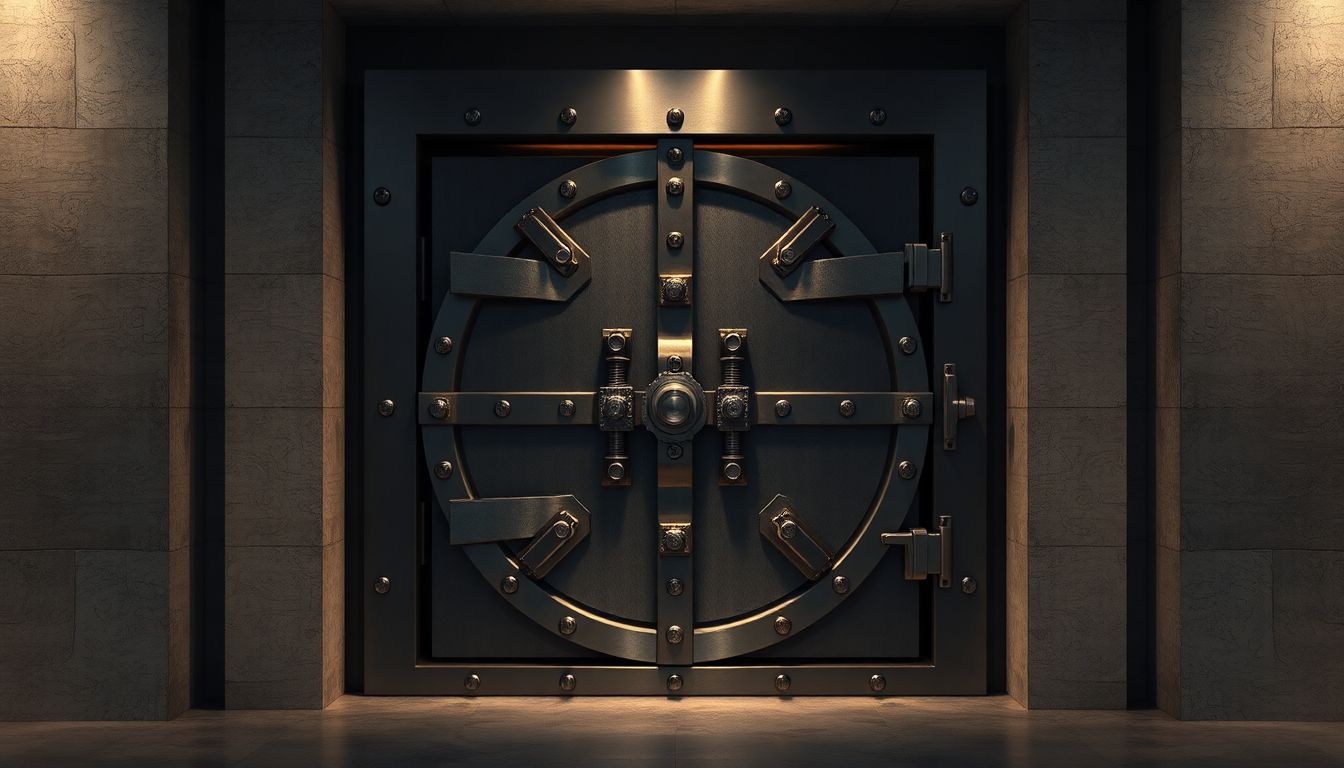Choosing the Right Vault Door: A Comprehensive Guide

Choosing the Right Vault Door: A Comprehensive Guide
Protecting your most valuable assets requires a robust security system, and a high-quality vault door is a cornerstone of that system. This guide provides a comprehensive overview of selecting the right vault door for your specific needs, ensuring your peace of mind and the safety of your valuables. We’ll cover key factors to consider, helping you navigate the process and make an informed decision.
Understanding Your Security Needs
Assessing Your Risk Factors
Identifying what you need to protect is crucial. Common threats include:
- Burglary: Many homes face this risk. The FBI reported around 1.1 million burglaries in 2019.
- Fire: Fires can lead to irreversible damage to irreplaceable items. Keeping things safe from fire is key.
- Flood: Water can destroy documents and electronics. Flood resistance adds extra security.
Assess the value of your assets. What do you need to protect? Knowing this will guide your choice.
Defining Your Security Requirements
Beyond risk, different contents may require unique protection:
- Types of Valuables: Cash, important documents, jewelry, and collectibles may need different levels of security.
- Resistance Ratings: Evaluate fire and water resistance ratings, like UL classifications.
- Discreet vs. Overt Security: Consider if you want a door that’s easily seen or one that blends in.
Budget Considerations
Vault doors come in a wide range of prices:
- Cost Range: Basic models can start around $1,000, while advanced options may exceed $5,000 or more.
- Influencing Factors: Size, materials used, and extra features affect price.
- Balancing Act: Aim to find a balance between your budget and the security features you require.
Types of Vault Doors: Materials and Construction
Steel Vault Doors
Steel doors have robust protection features:
- Gauge Thickness: Different thicknesses (usually measured in gauge) reflect varying levels of security.
- Reinforcement Techniques: Look for features like welding and reinforced frames.
- Manufacturers: Companies like American Security and Rhino Metals provide reputable options.
Composite Vault Doors
Composite doors mix materials for enhanced security:
- Material Mixtures: These often combine steel with concrete or other materials.
- Advantages/Disadvantages: They may offer fire protection but can be heavier and complex.
- Example Installations: Many businesses utilize these for balancing durability and weight.
Specialty Vault Doors
Some doors serve specific protective purposes:
- Fire-Resistant: UL ratings indicate how long a door can protect in a fire.
- Water-Resistant: Look for doors designed to withstand flooding.
- Integrated Systems: Doors with advanced security systems increase safety further.
Key Features to Consider
Locking Mechanisms
Choosing the right lock is critical:
- Types of Locks: Options include combination locks, key locks, and biometric locks.
- Strengths/Weaknesses: Consider ease of use and potential vulnerabilities.
- Risk Assessment Recommendations: Choose based on your specific risks.
Door Thickness and Construction
The construction quality impacts security:
- Impact of Thickness: Thicker doors generally provide better security.
- Reinforcements: Look for features like rebar within the construction.
- Expert Advice: Consult industry experts to determine the best gauge for your needs.
Additional Security Features
Enhancing security sometimes requires extra features:
- Hinges and Locking Plates: Reinforced hinges and plates add security.
- Intrusion Detection: Consider doors that can alert you to breaches.
- Concealed Hinges: Help mask weaknesses from potential attackers.
Installation and Maintenance
Professional Installation
Proper installation is essential for security:
- Importance of Expertise: Experts can ensure your door is installed securely.
- DIY Risks: Failing to install correctly can lead to vulnerabilities.
- Finding Installers: Research local professionals with experience in vault doors.
Regular Maintenance
Keeping your vault door in top shape is vital:
- Inspection Schedule: Check locks, hinges, and seals regularly.
- Lubrication and Cleaning: Keep moving parts functional for longevity.
- Address Issues Quickly: Don’t let small problems become major ones.
Conclusion: Securing Your Future with the Right Vault Door
Choosing the right vault door is a critical investment in protecting your most valued assets. By carefully assessing your security needs, understanding the various types of doors available, and considering essential features, you can make an informed decision that safeguards your valuables for years to come. Remember, prioritizing professional installation and regular maintenance will ensure the longevity and effectiveness of your vault door investment.
